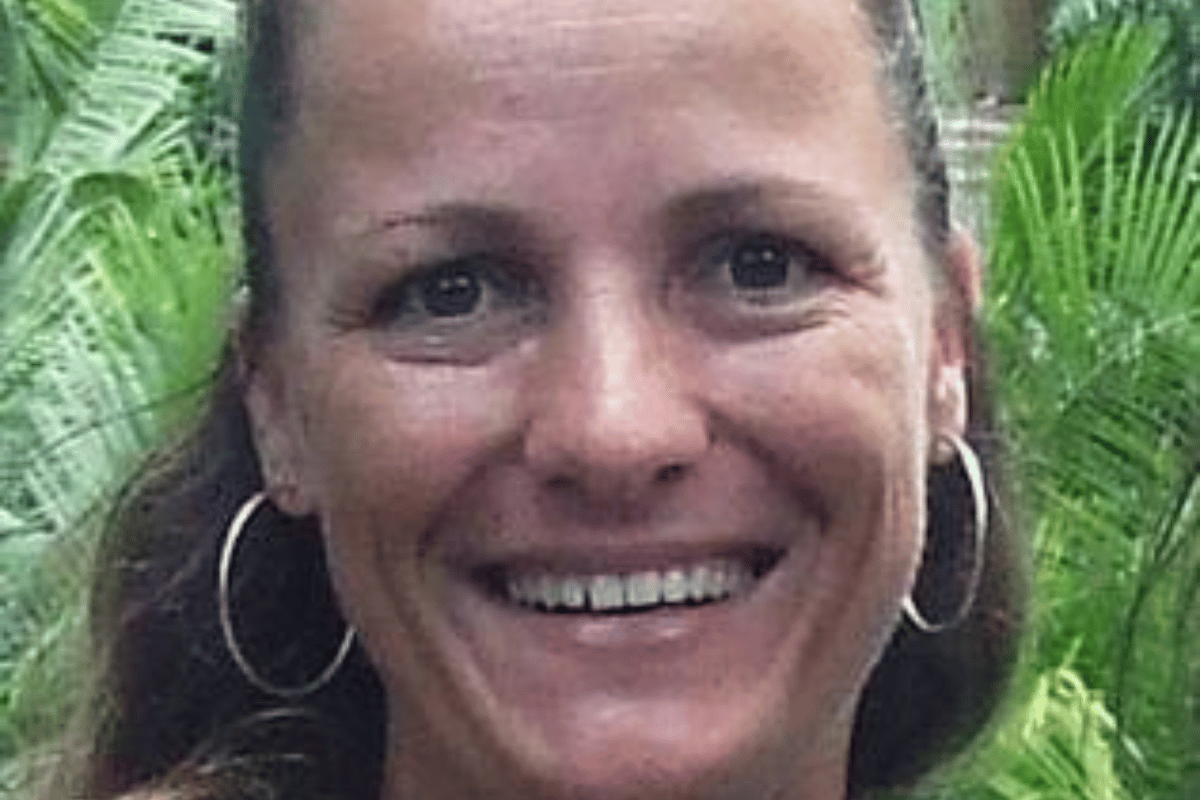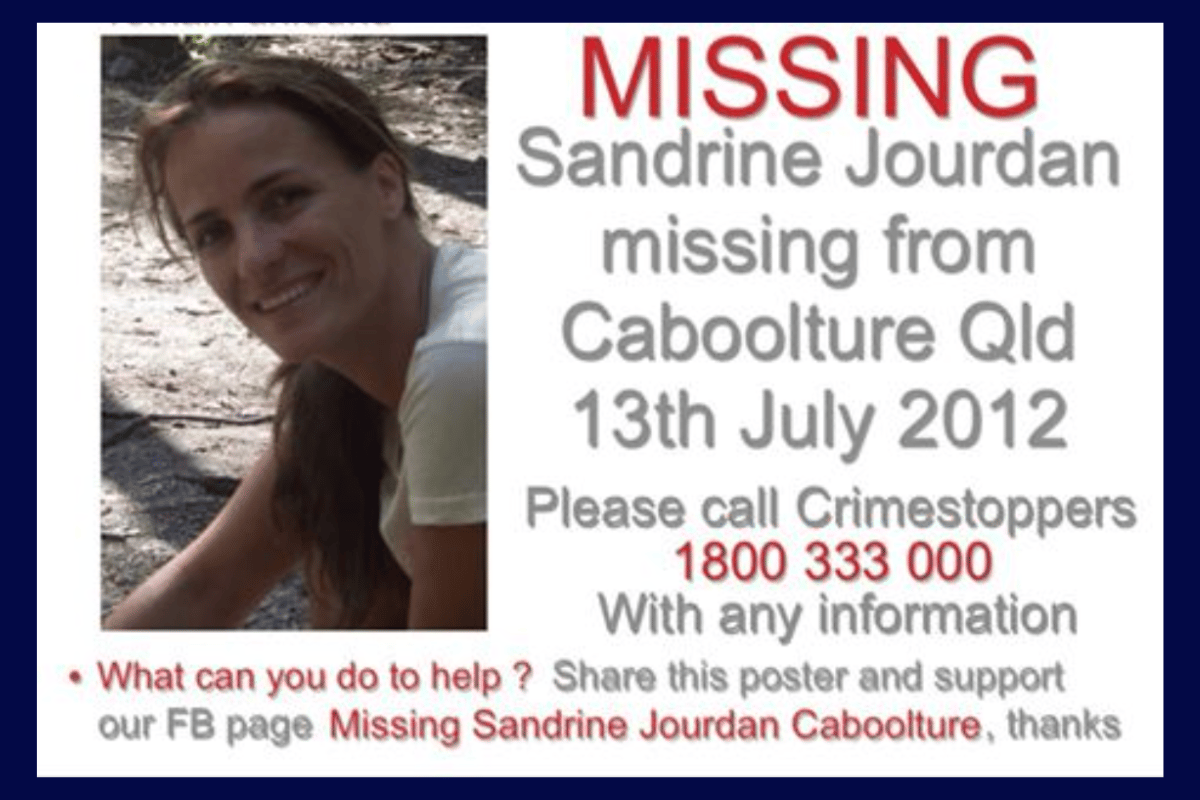
Content warning: This story includes descriptions of child sexual abuse and suicide that may be distressing to some readers.
On July 13, 2012, Sandrine Jourdan received a phone call. The 37-year-old was visiting a friend in the Queensland town of Caboolture when she answered the call.
"250 people go missing every year," the person on the other end of the call reportedly told Sandrine. "What makes you any different?"
Sandrine was visibly shaken after the call, her mum later said. In the days leading up to this call, Sandrine had told her loved ones that she was scared for her life.
Watch the trailer for Mamamia's True Crime Conversations podcast. Post continues below.
Later that day, Sandrine visited the home of another friend - a man named John Boegheim who also lives in Caboolture, located between Brisbane and the Sunshine Coast.
Boegheim's property is set on five secluded acres, much of which is dense vegetation and swamp land. It's the last known place Sandrine would be seen alive.
For years, her suspected death was ruled a suicide. But her family, three children, and one retired detective believe there's far more to the story.

